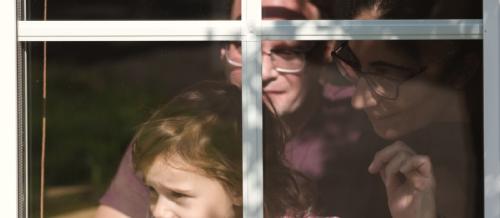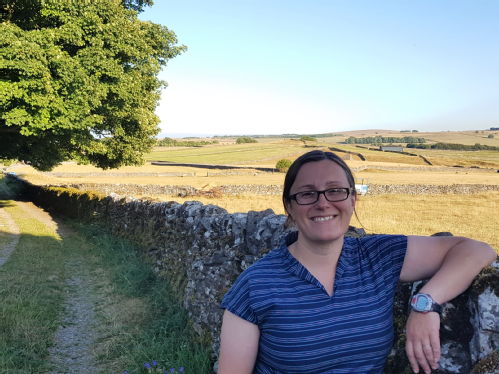Re-Voicing Words

What happens when poetry is performed by different voices – how does this affect the performance space and reception of the poem? When is re-voicing of poetry appropriate (e.g. when does it enable expression of solidarity or community of voices)? When is re-voicing poetry inappropriate (e.g. where unjustly marginalized voices are potentially obscured)? How might re-voicing works of poetry bring communities together?
This project investigates these questions with the poetry community through collaboration with poetry organisation, Poet in the CityLink opens in a new window, to connect the theoretical discussion of philosophy of voice with recommendations for commissioning original works of poetry, performance/publishing and programming of events. The recommendations will ensure that the poetry continues to provide an important civic function of bringing people together and creating spaces for the most vulnerable voices in society to be heard and acknowledged.
In May 2021, we held a workshop with poets and members of the community who's voices formed a series of poems for Poet in the City's project 'Connected through the Unknown: A Hounslow Covid Archive'. You can read the essay and poem by Momtaza Mehri that arose from the discussions at the workshop in Poetry Review. Here's an extract from the essay:
"One might be tempted to think that all poetry involves some transcription of other voices. In outlining his method of cut-out poetry, William S. Burroughs famously declared all writing a “collage of words read and heard and overheard”. Many poets draw on other voices in their work, taking inspiration from conversations, overhearings, and other encounters with language, but poetic transcription is more direct in its incorporation of other voices. Found poetry and other kinds of collage poetry are not necessarily sensitive to the origins of their material, appropriating words and phrases as mere resources for the poem. Such an approach doesn’t address the situatedness of the original authors of those words, whether they belong to people who have been unjustly marginalised (due to ableism, homophobia, racism, sexism, etc) and whether appropriating their words causes further harm by removing context and changing meaning (thereby denying them a voice). Poetic transcription, on the other hand, aims to invoke the voices of others in addition to using their words and in doing so hopes to enable other voices to be heard and bring community together through poetry. It is therefore responsive to the ethics of who speaks and who gets to be heard (even if not always successful in meeting these ethical demands)." (p. 98)
"To bring multiple voices together, not only must the poet select elements that are shareable in terms of the physical voice, but the poet must also be able to ‘sound’ or ‘give voice to’ the other voices. The poet’s task is to discover commonality with the patterns and rhythms of the other voices and their own. Other voices must be resonant with the poet’s own for the poet cannot escape their own voice but can bring others together with or through it. In doing so, the poet must attend to, or rather, tend to these other voices and the separation between them. Finding connections in rhythm and the aesthetics of language (such as assonance, consonance, and other aspects of the experiential beauty of the aurality of words) serves as the connecting force between voices, whilst allowing the voices to express difference in perspective." (p. 102)
A Common Gift by Momtaza Mehri (extract)
Against vanity, I try to translate this philosophy of flight,
Of time’s trickling pace, the race of words catching up to intentions.
Even the bearing of witness has its limits, its gated horizons.
Bare the wound’s wonders. The sparrow-sized ball of delight
Buried in the chest. Is the poet a ventriloquist of the senses?
Who buries what has been unearthed?
Lives swallowed into the fold of verses. Each voice a shard
Of glass, uniquely jagged. An intricate lattice
Of particular joys & defeats.
For more information about the project, please contact Dr Karen Simecek: k.d.simecek@warwick.ac.uk


Dr Karen Simecek is an associate professor in Philosophy. Her research focuses on the philosophy of poetry, voice and emotions. She is currently writing a monograph on the Philosophy of Lyric Voice (under contract with Bloomsbury Academic).
